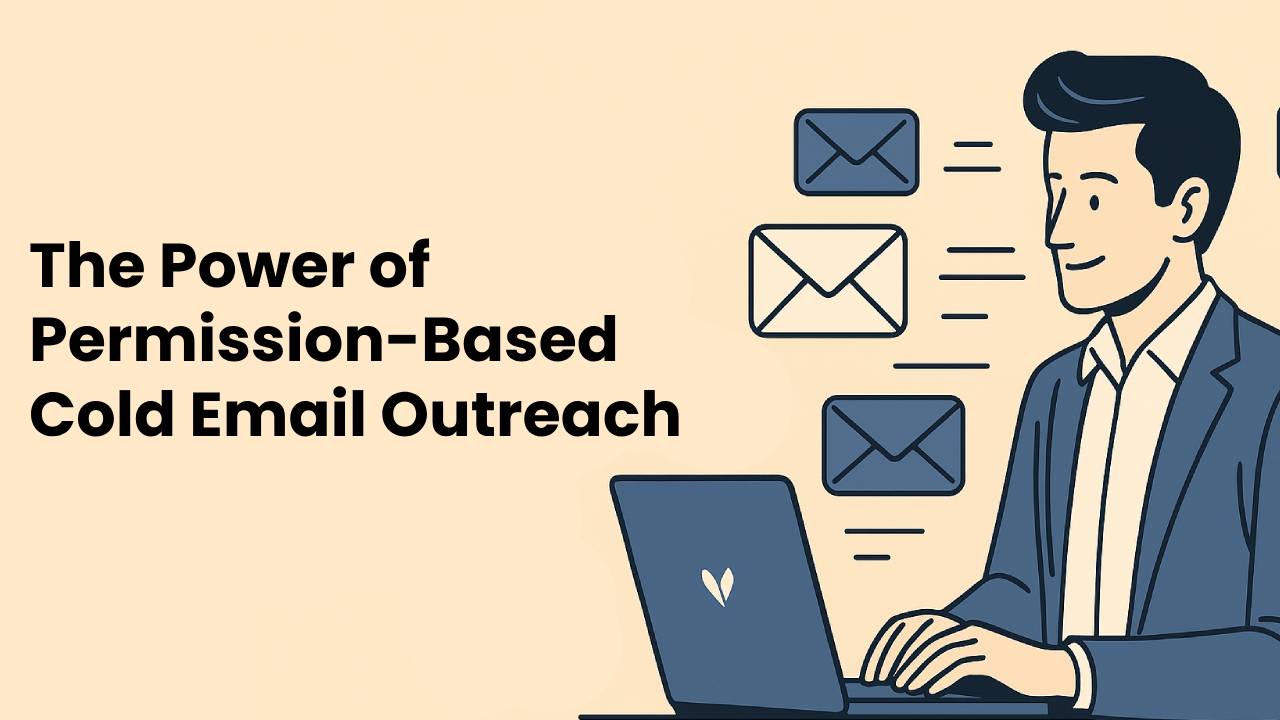When launching a cold email campaign, it’s important to remember a key truth: you are entering someone’s mental space uninvited. Whether they are busy with work, spending time with family, or simply managing the flood of emails in their inbox, your unexpected message can easily trigger a defensive reaction. In fact, traditional cold emails often feel like interruptions, and recipients are quick to hit “delete” — or worse, “mark as spam.”
But there’s a better way to approach cold outreach — one that feels respectful, earns trust, and significantly improves response rates: the permission-based approach.
What Is a Permission-Based Cold Email?
Rather than immediately pitching your product, service, or idea, a permission-based cold email simply asks for the recipient’s consent to continue the conversation. The goal of your first email isn’t to sell — it’s to open a door.
By doing this, you signal that you respect their time and autonomy. You shift the dynamic from “I want something from you” to “I’d like to offer you something — if you’re interested.” It gives the control back to the recipient, which immediately lowers their defenses.
Here’s a simple example:
Subject: Quick Question
Hi [First Name],
I know your time is valuable, so I’ll be brief.
I help [specific type of professional] solve [specific challenge]. Would it be alright if I sent you a few details to see if it’s relevant for you?
No worries if not — just let me know!
Best,
[Your Name]
Notice how this email doesn’t assume anything. It simply invites a “yes” or “no” without pressure.
Why the Permission-Based Approach Works
In my own experience running cold email campaigns, switching to a permission-based method has made a huge difference. Many recipients have replied with a simple “Sure, send it over” — and because they have chosen to engage, they are far more open and receptive when the second email with more detailed information arrives.
There are psychological reasons for this:
- People value their autonomy. When you ask for permission, you honor their freedom to choose.
- Curiosity is a powerful force. A well-written permission email creates just enough intrigue that people want to know more.
- It builds micro-trust. You demonstrate that you are not just another pushy salesperson but someone who communicates with respect and professionalism.
Crafting Your Permission Email
For a permission-based approach to work, your initial email must be short, respectful, and curiosity-driven. You don’t need to explain everything in the first message. In fact, the less you say, the better — as long as it’s relevant enough to spark interest.
Here are some tips:
- Personalize it. Show that you know a little about who they are and what they might need.
- Be clear about the next step. Ask specifically if you can send more information — don’t be vague.
- Keep it human. Write as if you were talking to someone in person, not sending a corporate mass email.
Another quick example:
Subject: Can I send you a quick idea?
Hi [First Name],
I recently helped [similar company or individual] with [specific result]. I had a few ideas that might be helpful for you as well.
Would it be okay if I sent you a quick summary?
Thanks for considering it!
Best,
[Your Name]
Conclusion
Permission-based cold emailing isn’t just a polite strategy — it’s an effective one. In a noisy world where everyone is trying to grab attention, those who approach with respect and genuine curiosity stand out.
Next time you build a cold email campaign, don’t just think about what you want to say — think about how you want the recipient to feel when they read your message. Aim to create a positive first impression by simply asking: “May I?”
You’ll be surprised how many people say yes.
Hope this was helpful!

